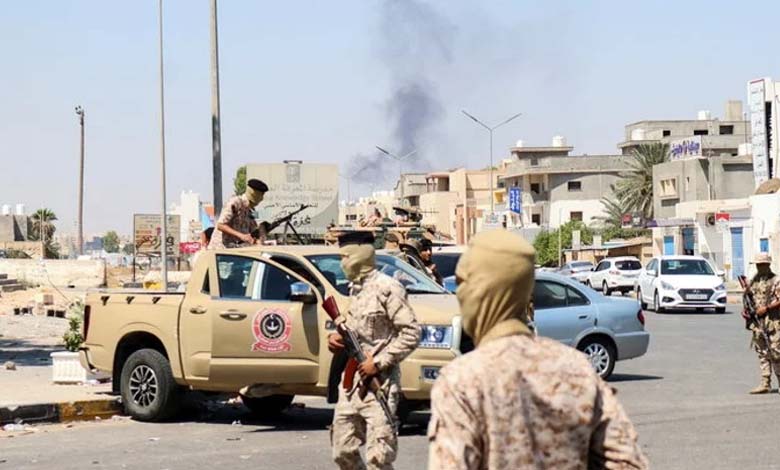Armed Clashes in Tripoli Reveal Fragility of Security Situation
The confrontation between armed groups coincides with preparations for an international forum on Mediterranean migration to be held in Tripoli, which will be attended by European and African missions, as well as officials including Meloni and the Chadian president.

A woman was killed in clashes between armed groups overnight from Tuesday to Wednesday in the eastern suburbs of the Libyan capital, Tripoli, according to local media and emergency services.
Clashes with medium and light weapons broke out late Tuesday in the city of Tajoura, about twenty kilometers east of Tripoli, near Mitiga International Airport and coastal resorts frequented by residents at night in summer.
This is not the first time the Libyan capital has witnessed clashes between armed groups, undermining Libyans’ hopes of curbing the rampant chaos of weapons. Observers of the Libyan situation blame Abdulhamid Dbeibah, the outgoing Prime Minister of the National Unity Government, for failing to address the key issue that hinders the country’s return to stability.
Dbeibah has always promised to resolve the issue of armed groups, while observers assert that many of them are loyal to him and that he has used them to secure his prolonged stay in power.
The spokesperson for the ambulance and emergency services, Osama Ali, told the local TV channel “Libya Al-Ahrar” on Tuesday evening: “A woman died after being hit in the head during the clashes in the municipality of Tajoura.”
The reasons for the clashes remain unknown, but local media reported that they erupted due to disputes between two armed groups controlling the city and the arrest of a member of the other group.
Heavy weapon clashes are common among armed groups in western Libya, despite these groups being affiliated with the National Unity Government based in Tripoli.
These confrontations occurred on the eve of an international forum on Mediterranean migration to be held in Tripoli on Wednesday, attended by European and African missions, including Italian Prime Minister Giorgia Meloni and Chadian President Mahamat Idriss Déby.
Since the fall of Muammar Gaddafi’s regime in 2011, Libya has been experiencing conflicts and divisions, with two rival governments: one in Tripoli (west) led by Abdulhamid Dbeibah and recognized by the United Nations, and the other in the east, supported by the parliament and Marshal Khalifa Haftar.
Armed groups emerged after Gaddafi’s death to fill the security void in the absence of stable state institutions, and are not under the direct authority of the ministries of interior or defense, although they are funded by public funds.
Their presence in Tripoli is noticeable at roundabouts and major intersections, where their members, often masked, have set up roadblocks and blocked roads with armored vehicles equipped with heavy and light weapons.
-
UN Security Council condemns Tripoli clashes, calls for quick elections
-
Washington in response to Libya clashes: ‘they will be held accountable’
Militia weapons are the biggest obstacle to efforts to end the current phase, as armed group leaders refuse any agreements leading to their disarmament, driven by their desire to secure their influence and interests, and are among the main beneficiaries of the ongoing situation.












